ARCHITECTURE OF THE TEXTILE INDUSTRY AND TEXTILE ARCHITECTURE
Textiles as the initiator of the adaptive conversion of the abandoned textile industry complex "Kosta Stamenković" in Leskovac
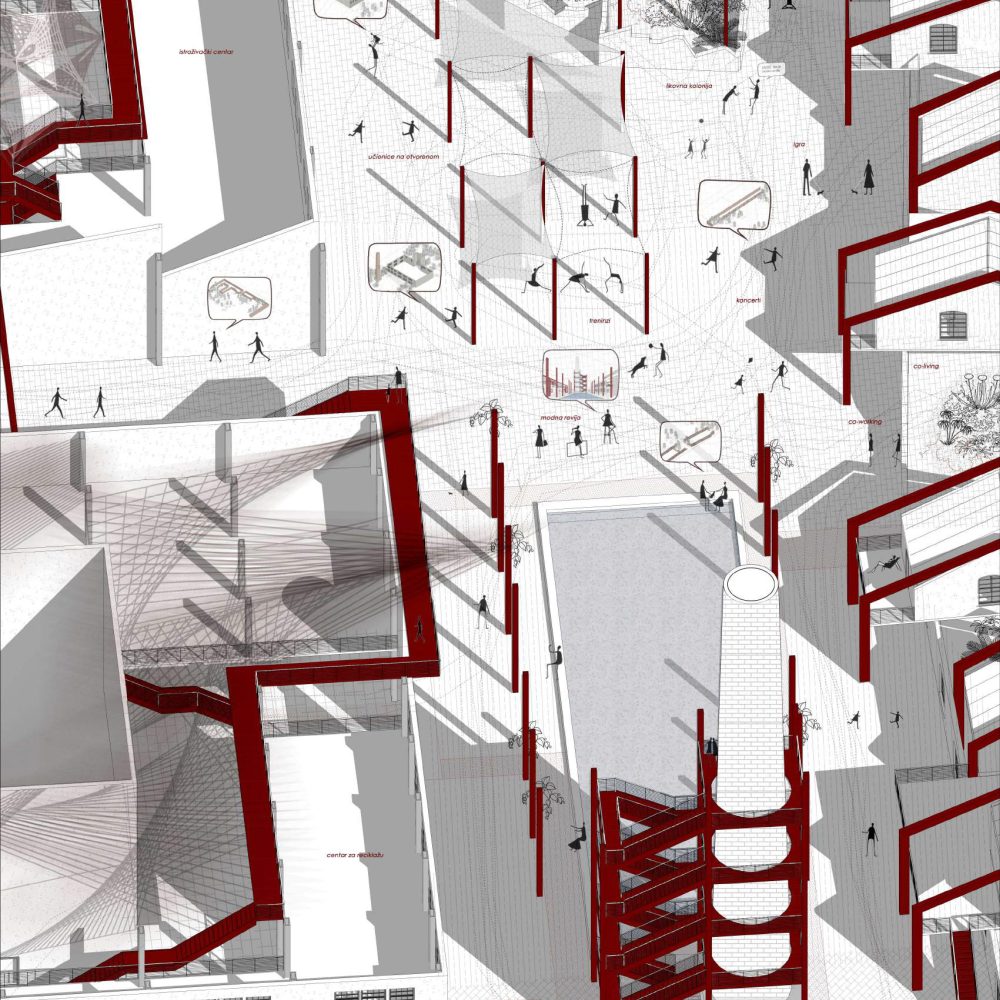
The subject of the master's thesis is the investigation of the relationship between textile materials and the architecture of the abandoned industrial heritage of the former textile industry "Kosta Stamenković" in Leskovac.
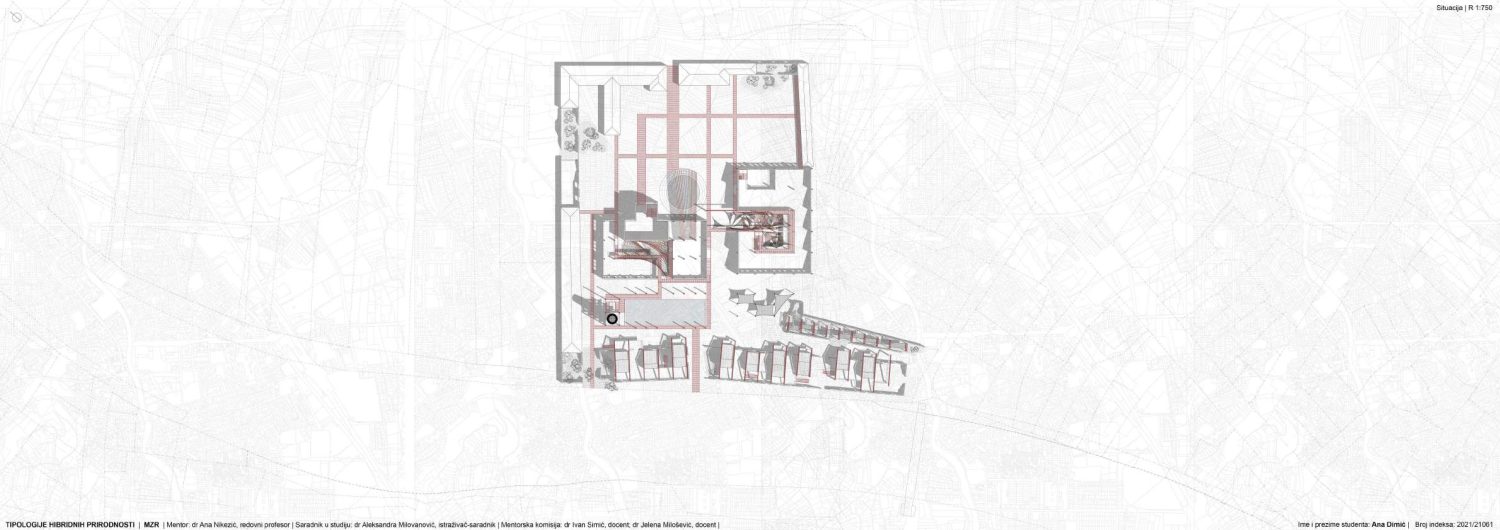
The complex was once a successful center of textile production, but today it is an abandoned space in the urban core of the city that is becoming a research ground for examining the principles of textile tectonics.
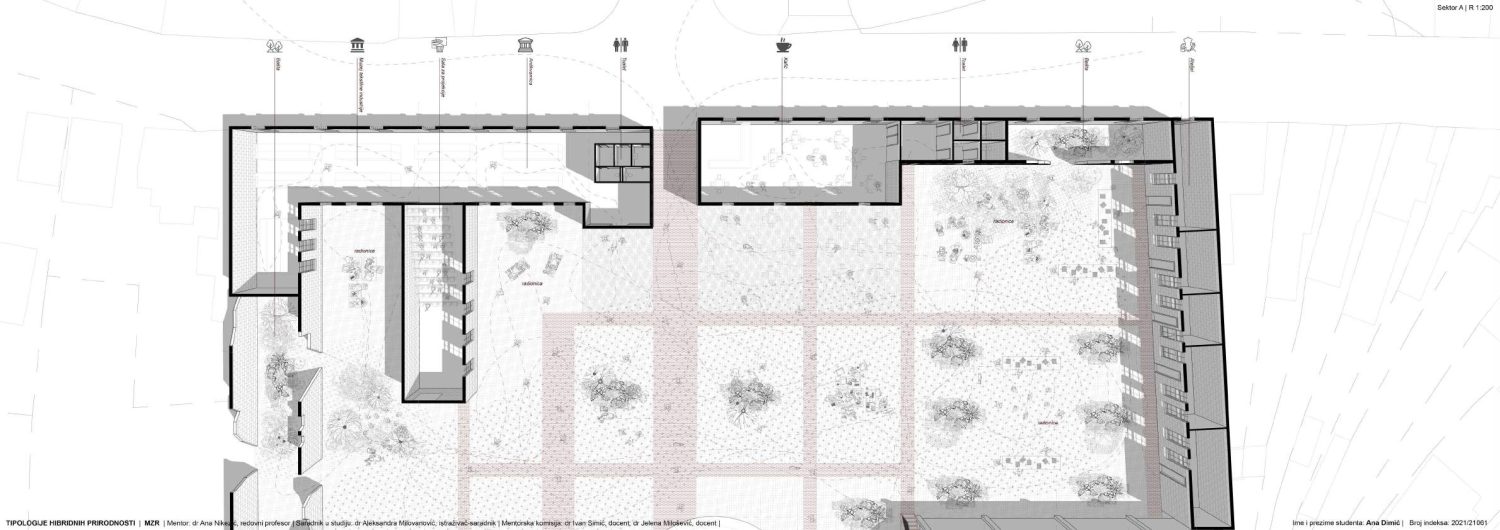
Through design experiments, testing and application of textile materials as key elements, the research aims to identify ways to reshape spaces and create inspiring architectural solutions.
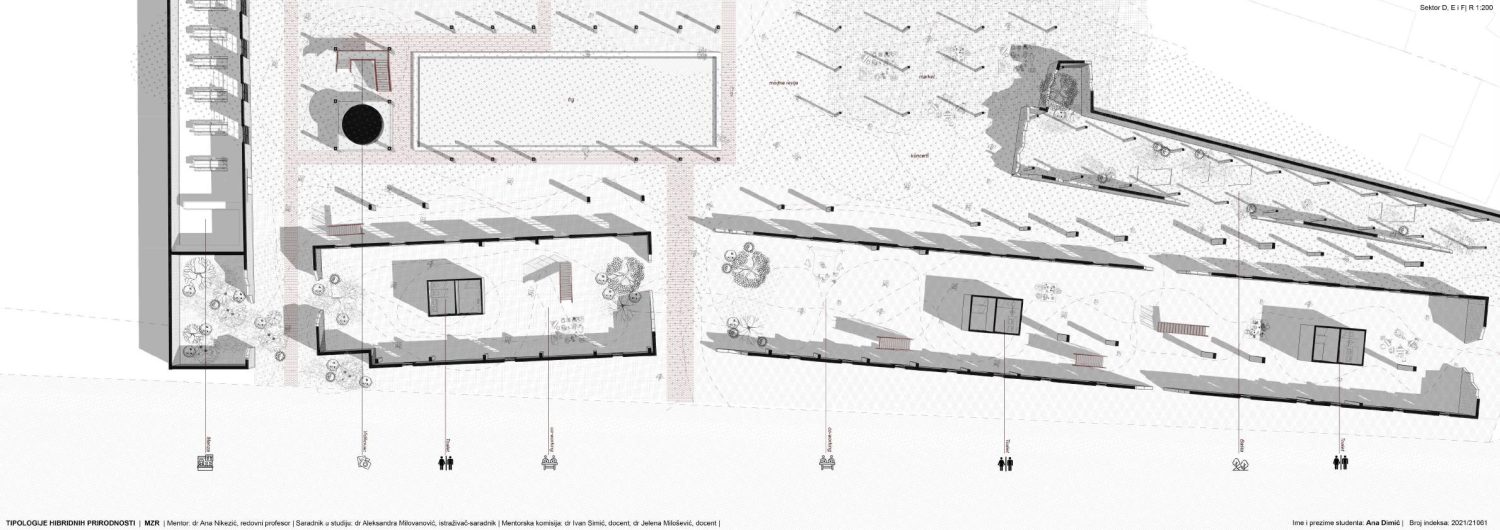
.In a broader contextual framework, the work is critical of the trend of transforming abandoned industrial complexes into shopping centers, ignoring the potential of these spaces for innovation and creativity, and instead promoting consumerism as a solution to the problem of abandonment.
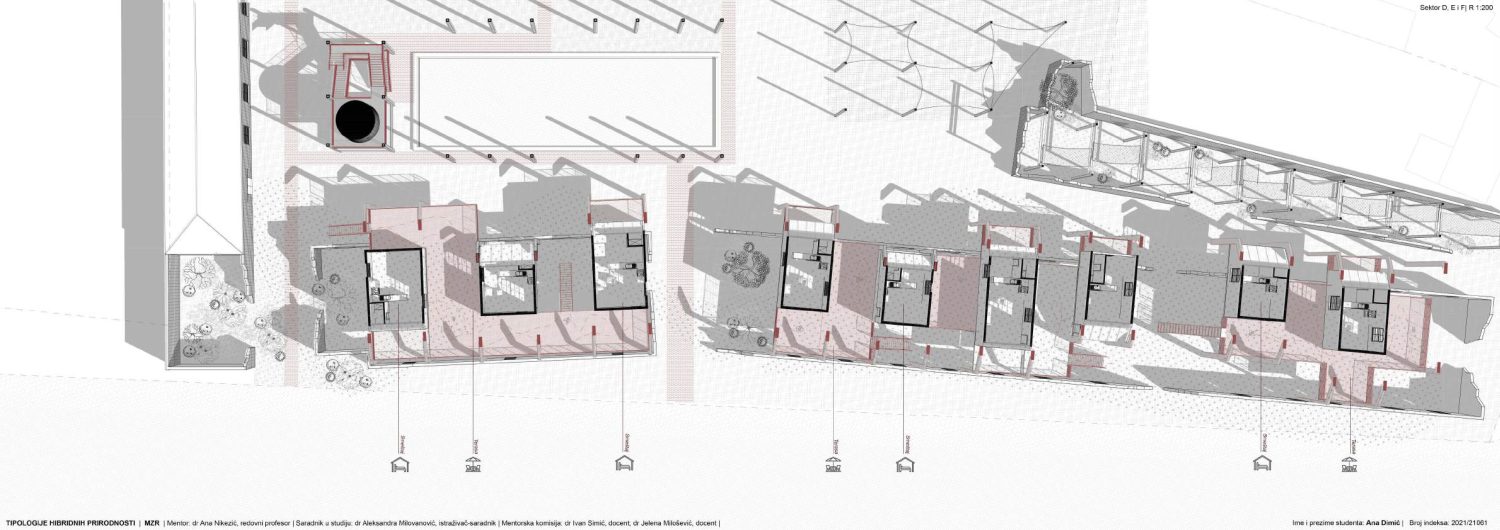
In contrast, the aim of this research is to show how abandoned complexes can be reimagined through the prism of textile tectonics, promoting sustainability, development and innovation in design.
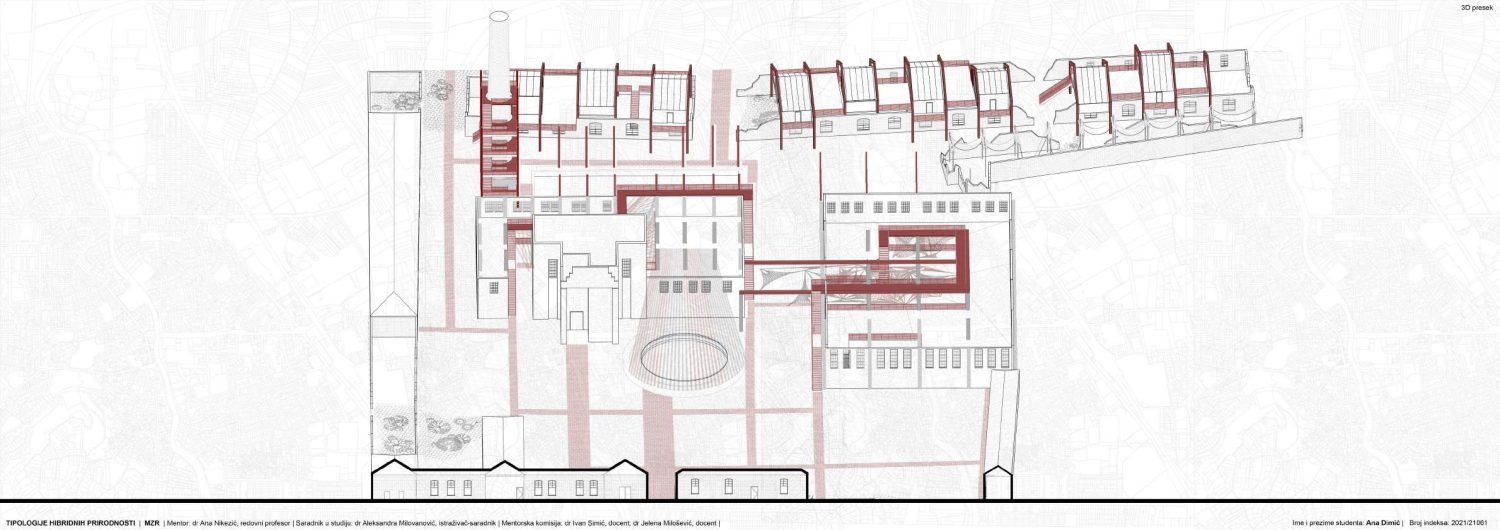
The result of this research provides guidelines for shaping future urban spaces with a special focus on industrial heritage in small towns.
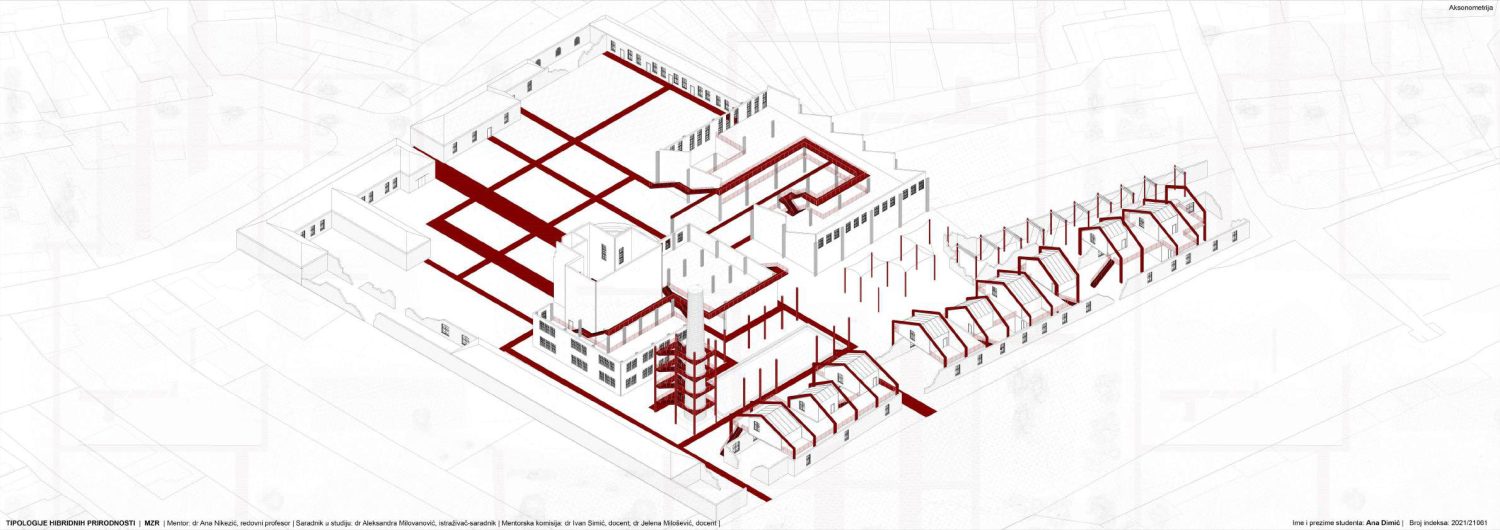
Textile tectonics as a means of revitalizing abandoned industrial complexes opens up opportunities to transform spaces into proactive and inspiring communities, while emphasizing the importance of preserving industrial heritage and promoting sustainable development.
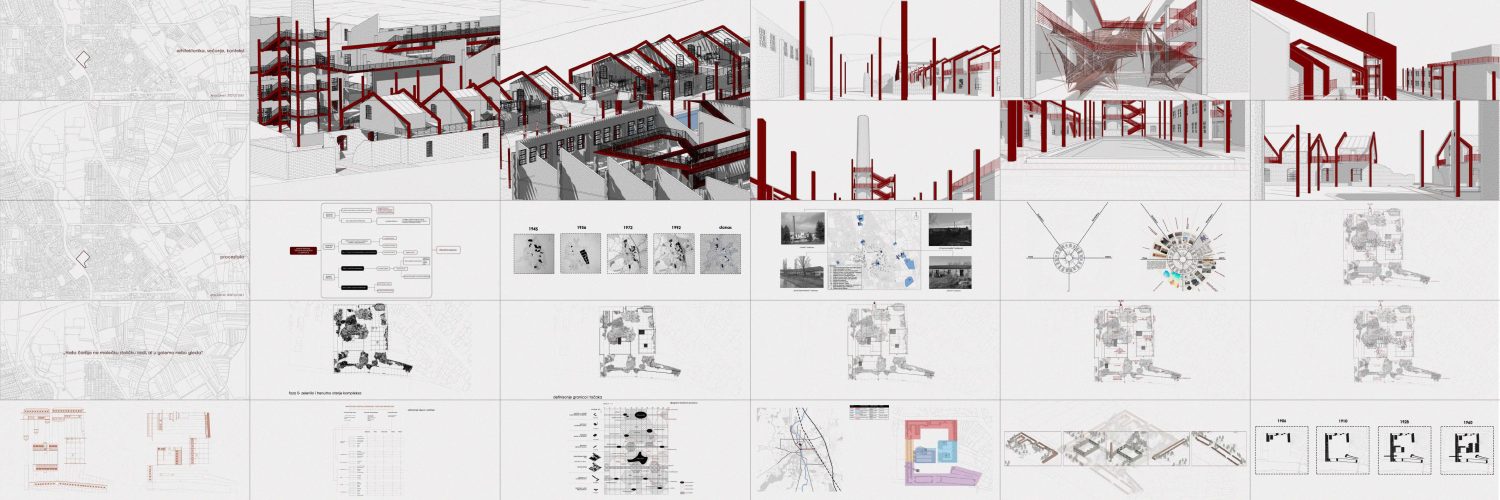
The subject of the master’s thesis is the investigation of the relationship between textile materials and the architecture of the abandoned industrial heritage of the former textile industry “Kosta Stamenković” in Leskovac. The complex was once a successful center of textile production, but today it is an abandoned space in the urban core of the city that is becoming a research ground for examining the principles of textile tectonics. Through the study of the history of the textile industry, including its final decline, the potential of unused buildings and spaces that remained as witnesses of previous success and activity, the so-called golden age of Leskovac, was recognized. Through design experiments, testing and application of textile materials as key elements, the research aims to identify ways to reshape spaces and create inspiring architectural solutions.In a broader contextual framework, the work is critical of the trend of transforming abandoned industrial complexes into shopping centers, ignoring the potential of these spaces for innovation and creativity, and instead promoting consumerism as a solution to the problem of abandonment. In contrast, the aim of this research is to show how abandoned complexes can be reimagined through the prism of textile tectonics, promoting sustainability, development and innovation in design. The result of this research provides guidelines for shaping future urban spaces with a special focus on industrial heritage in small towns. Textile tectonics as a means of revitalizing abandoned industrial complexes opens up opportunities to transform spaces into proactive and inspiring communities, while emphasizing the importance of preserving industrial heritage and promoting sustainable development.
Key words: heritage of the textile industry, textile, membrane structures, innovation, transformation